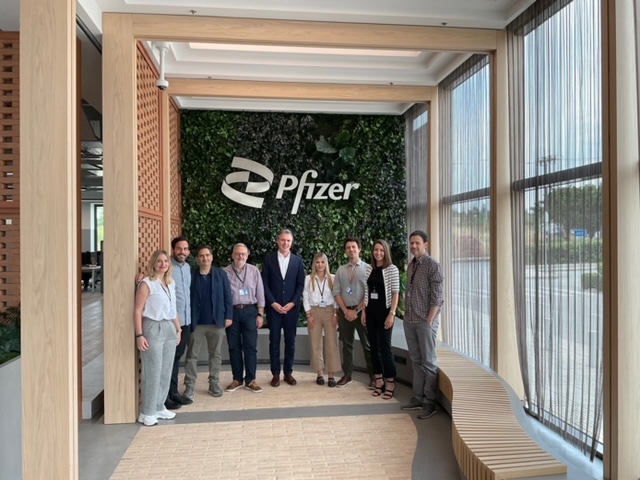Pfizer’s Center for Digital Innovation (CDI) in Thessaloniki is constantly investing in strategic collaborations with the Greek research and innovation ecosystem in the field of digital health technology and in this vein has announced two collaboration agreements with important Greek academic institutions: the Department of Informatics of the Aristotle University of Thessaloniki (AUTH) and the Department of Computer Engineering and Informatics of the University of Patras.
These are CDI’s first collaboration agreements with partners from the academic community, which expand the Center’s network of collaborations with the Greek innovation ecosystem, which has been its top priority since the start of its operation in Thessaloniki.
In particular, the collaboration with the Department of Informatics of AUTH focuses on the field of Quantum Computing, an emerging computing model for the future, which allows exponentially higher speeds than conventional computers in solving optimization problems in fields such as chemistry, biology, precision medicine, but also in drug discovery.
In this direction, the project will develop a “quantum” algorithm that promises optimal performance in areas such as diagnostics and drug development, with speed and efficiency far greater than that currently allowed by existing solutions and infrastructures.
Mr. Nikos Konofaos, professor of the Informatics department of AUTH, Director of the Laboratory of Statistics, Applied Mathematics and Electronic Physics (SEMIF) and scientific manager of the program stated that the scientific research that will be carried out concerns the study of quantum algorithms. “This collaboration promotes research on quantum computers, which are the technology of the future and directly connects the generated knowledge with important applications in the Natural Sciences and Health Sciences,” said Mr. Konofaos
CDI works systematically on actions related to Quantum Computing, with the goal of Pfizer being a Quantum-Ready company, to further serve Pfizer’s mission to advance innovations that change patients’ lives.
Regarding the collaboration with the Department of Computer Engineering and Informatics of the University of Patras, its aim is to develop new methods based on the Internet of Things (IoT) and Artificial Intelligence (AI) for the diagnosis of diseases based on voice. The planned solution will leverage smartphones, as widespread and easily accessible connected devices with enhanced capabilities, such as microphones, in the Internet of Things (IoT) era. Using voice samples and Artificial Intelligence, the solution will provide new, digital biomarkers for disease diagnosis and monitoring with low cost and remote access. Such an application will facilitate remote diagnosis and monitoring by healthcare professionals, as well as patient self-management.




